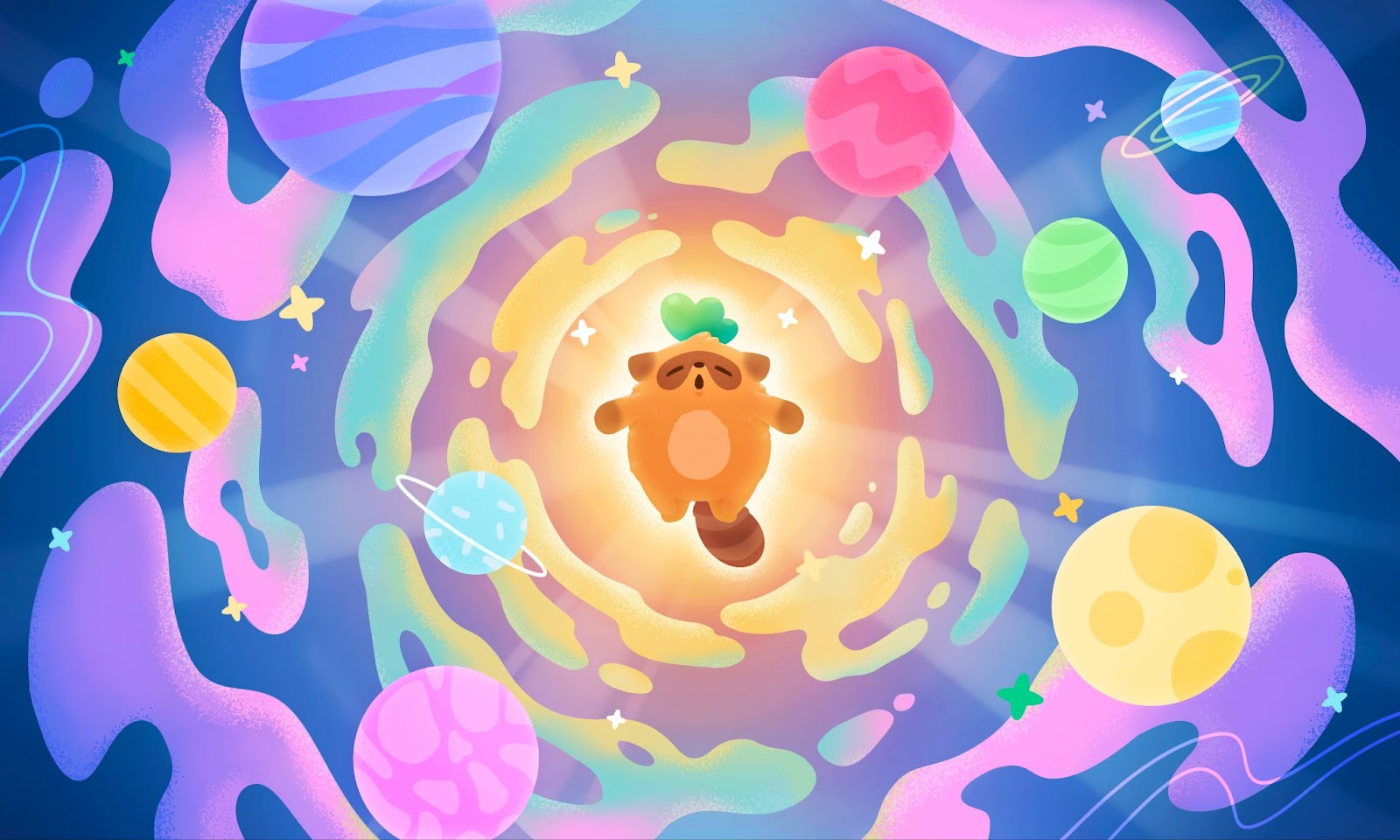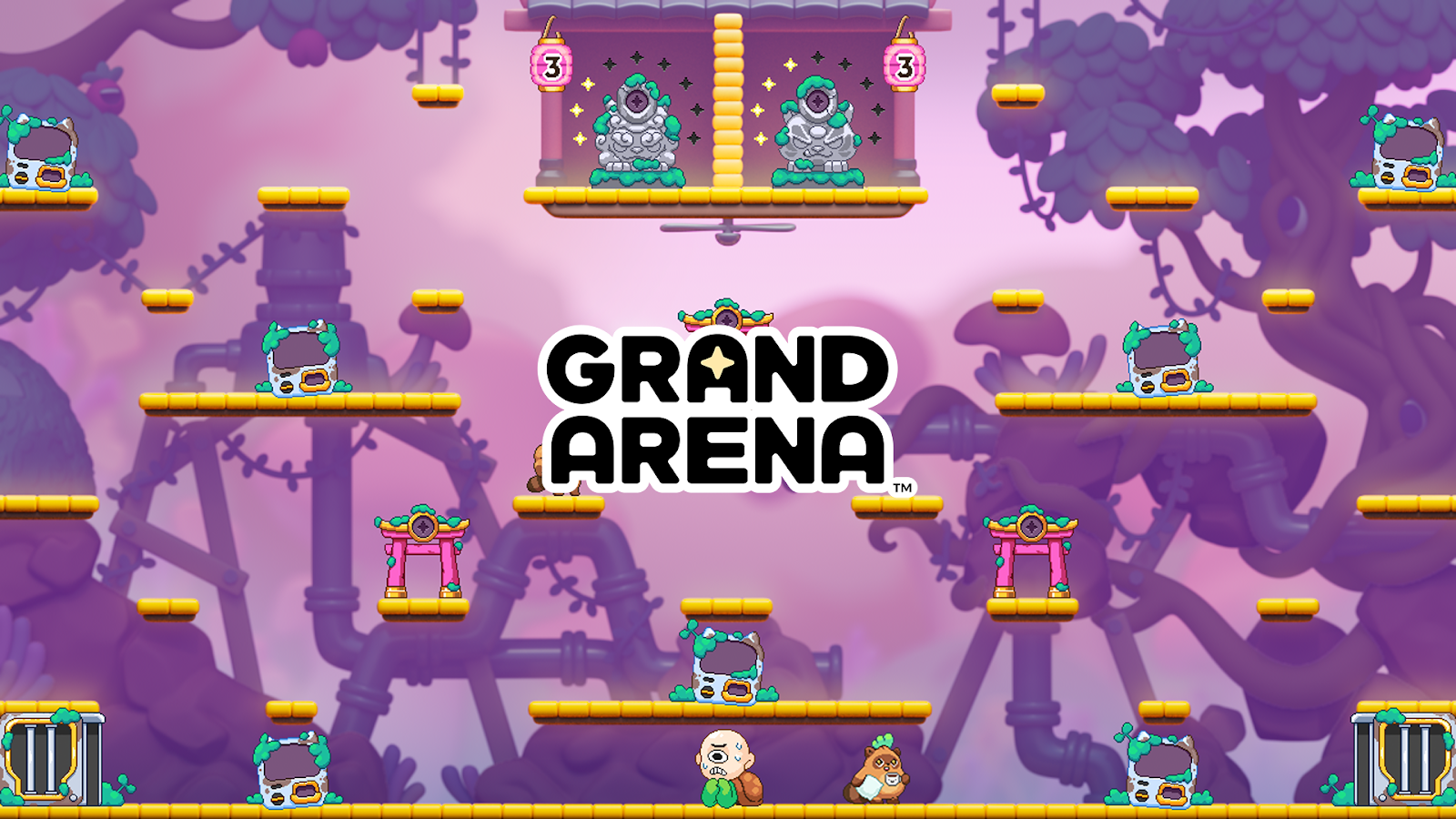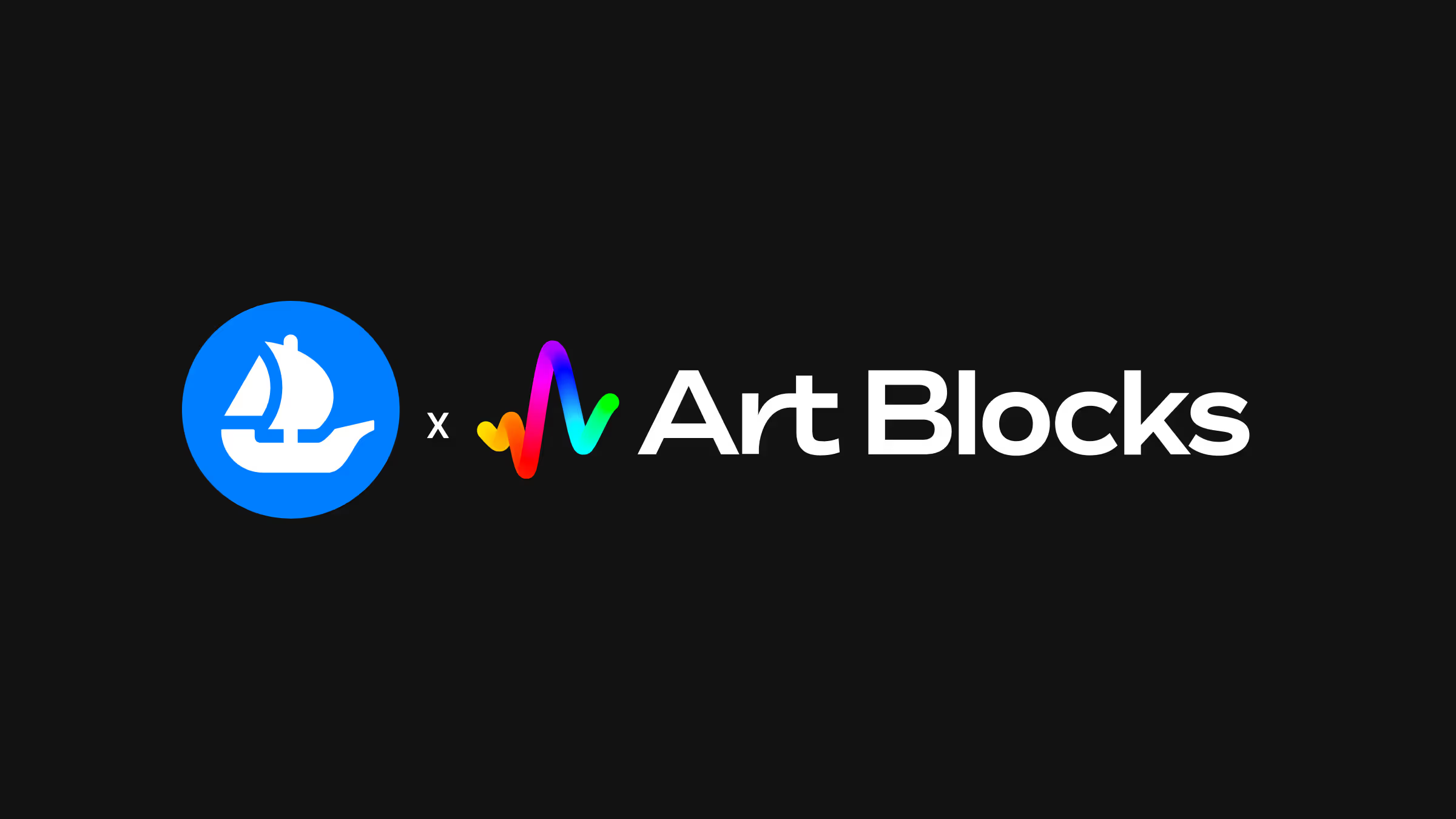Moku is a web3 development studio where one NFT collection sits at the center of everything. The 8,887 Mokis are cartoon-style avatars that work as both collectibles and in-game characters, designed to function across every product the company makes.
That lineup already includes Moki Pochi, a live puzzle game where players combine snacks to chase high scores. The studio’s biggest project, Grand Arena, is also coming soon. It is a daily fantasy platform to speculate on the outcomes of agentic entertainment, where players will crack packs, draft cards, and enter contests in a 24/7 always-on fantasy league.
Moku was co-founded by Hantao Yuan, a seasoned professional who has more than a decade of experience in gaming. He began by running collegiate gaming events as a chemistry student at The University of British Columbia, then moved into user acquisition roles for publishers and later managed esports teams before selling one of his own to New York-based sports media Overtime Sports in early 2020.
That gaming background led him to web3, where he saw that players behaved differently from traditional gamers and needed products designed around incentives and community-building as much as gameplay.
In this interview, Yuan explains how Moku developed, why the Mokis are its foundation, and what this reveals about building for the next generation of fantasy-based games.
Editor’s note: This transcript has been edited for length and clarity.

OpenSea: Let’s start with your background. You’ve been around gaming for more than a decade—how did that journey set you up to build Moku?
Hantao Yuan: I’ve been in gaming for 11 years. In college, I was running tournaments and campus events for 500 to 1,000 students. That’s when I realized I wanted to go all-in on gaming, even though my parents hoped I’d become a doctor.
After school, I joined a subsidiary of I Got Games (IGG), a global mobile game publisher known for titles like Lords Mobile. We were building a livestreaming platform, and my job was to bring in content creators and grow the amount of daily active users (DAU). That’s also how I first got introduced to esports, the professional, competitive side of gaming.
I ended up working with a team called SoaR Gaming, which had been started by the founders of FaZe Clan, one of the most well-known esports organizations in the world. At SoaR, I helped with strategy until the company was acquired by E11 Holdings, a Canadian investment group. Some people I met there later soon crossed into web3, so I was starting to hear about it. But instead, after that, I became co-owner of another esports team. We built it up, and I eventually sold the team through an acquisition to Overtime Sports. All of these experiences gave me the chance to work with creators who appeared in YouTube Rewind and MrBeast Rewind, and it taught me a lot about how content works and how gaming communities scale.
OpenSea: So then you made the jump from traditional esports into web3. What first drew you into the crypto gaming space?
Hantao Yuan: One of my friends at Twitch told me Axie Infinity was blowing up and suggested I take a look. I started talking to different guilds—player-run groups that pooled resources—to see how they operated and whether they could actually become investable.
That’s when I met Bruce, who’s now my co-founder. His guild stood out because he had real systems, people helping him run things, and a long-term plan, while most guilds at the time were pretty casual. Running a guild is hard work, and he treated it like a business. I joined him when his guild was still called SuperWhale. Later we merged with Akhil, who ran another guild called Proof of Game, and together we formed QU3ST. From there, we rebranded into Moku.
OpenSea: Well now I’m really curious—what do your parents think now that you’ve been through an acquisition and come out the other side successful? Have they accepted that you’re not going to be a doctor?
Hantao Yuan: I don’t think so. They grew up in a generation without the internet, and as first-generation immigrants, their mindset is still pretty traditional. They don’t really understand what I do, but they’re more relaxed about it now. Their attitude is basically, “As long as you’re not homeless, we’re fine.”
OpenSea: Right, they just want to make sure you’re taken care of.
Hantao Yuan: Totally.
OpenSea: It’s interesting to hear you talk about the structure and rigor behind running a guild. Do you think a lot of people came into web3 for its openness and inclusivity, only to realize how much structure these projects actually required?
Hantao Yuan: Yeah, for sure. People always see new industries through rose-colored glasses. When I first got into gaming, esports teams were raising huge amounts of money just to buy franchise spots in leagues like Overwatch League, Call of Duty League, and League of Legends Championship Series. Everyone thought, “Wow, there’s endless money here.”
The same thing happened in crypto during the Axie boom. For a while, it felt like every game was getting funded. But once teams actually started building products, they realized how difficult it is to create something sustainable in this space.
OpenSea: But not you! You’ve been building since 2021, which means you’ve survived a few hype cycles rise and collapse. What kept you focused through all of that, and how did those experiences shape Moku’s direction?

Hantao Yuan: Because we actually started as an Axie guild, our first big opportunity came when Axie’s in-game token, SLP, was dropping and a lot of people thought the whole project was finished. Sky Mavis, the studio behind Axie, needed help keeping the community engaged, so we partnered with them. We built out their creator program, set up structure for creator engagement, and learned firsthand how tough it is to keep people engaged when the market turns.
The first product that really worked for us was a questing platform, but we built it in a way to filter out bots and fake accounts—what’s called Sybil resistance. Through that platform, we helped distribute traffic to every game launching on the Ronin network, including Pixels, Apeiron, and Machines Arena. That experience showed us that traditional games don’t necessarily translate into web3. Most studios were pitching AAA-style games with free-to-play models, but the web3 player base behaves more like investors than traditional gamers.
We realized some hard truths: if there’s money to be made, people will chase it, and they’ll use scripts, bots, or any advantage possible. If you just build a traditional game, it’ll get farmed.

OpenSea: Now, you’ve called yourself an ‘experienced shitposter’ when describing yourself. That’s not something most founders list on their résumé. Take us through the art of shitposting—how do you know when it’s working, and why is it important for Moku?
Hantao Yuan: For me it’s about engagement. If people react—whether they’re laughing, annoyed, or just feeling something—that’s when I know it’s working. People today want genuine connection, not corporate messaging.
Think about it—when brands first got on social media, they were super stiff. Then we had the first wave, like Wendy’s with their snarky tweets. Then Duolingo came along with a more unhinged style. Those shifts happened because people wanted brands to sound like people. You’d never walk into a room and immediately recite your revenue numbers. You’d say, “Hey, where are you from? What’s your story?” Shitposting is just the online version of that.
It’s also about founder-led marketing. When it comes directly from me, people know it’s authentic. Agencies can’t replicate that. It’s the same reason early YouTubers worked—even when they were cringe, they were real.
OpenSea: Who were some of your favorite early YouTubers? I just think of Jenna Marbles.
Hantao Yuan: Ryan Higa, KevJumba, PewDiePie, and Lonely Island. Those creators weren’t polished brands. They were just people doing fun things, and audiences connected with that.

OpenSea: You mentioned earlier that there are some unique mechanics in play for Grand Arena. What can players actually look forward to?
Hantao Yuan: Grand Arena is infrastructure. At its core, it’s a daily fantasy platform built around AI content.
There are two main parts:
The first layer is agentic athletes that are able to compete 24/7 in games and experiences. We'll be launching the first experience ourselves called Moki Mayhem, a 3-ways-to-win game where agents will constantly be making decisions to complete PvE, PvP, or PvB win conditions. We are utilizing our own custom reinforcement learning model so that our agents can scale to future games and experiences for Grand Arena. We'll be releasing S1 with Mokis as players in Moki Mayhem, with additional IPs being added in future seasons.
The second part is the daily fantasy layer. Players can speculate on how these AI agents will perform. We built it this way because we know AI-generated content is already everywhere. Think of those viral TikToks or Instagram Reels where animals are doing human things—you’re not sure if it’s real or fake, and often it’s AI. That’s only going to get harder to tell apart, so we wanted to create 24/7 content that players could have skin in.
The twist is that we’ve built Grand Arena to be bot-positive. In most web3 games, people will use scripts or automations to “farm” rewards. By designing a system where bots are supposed to play, it eliminates that loophole—no stat-fixing, no exploits. Players get nonstop content to watch, and they can join contests by betting on outcomes.
And this ties into the web3 mindset. If you look at prediction markets like Polymarket, people will bet on almost anything—interest rates, election outcomes, even pop culture. They enjoy the thrill of speculating when they have an edge. Grand Arena applies that same instinct to gaming, with the potential for big multipliers if you’re right.
OpenSea: That’s a big insight. After four years of building Moku, what do you think most teams are still getting wrong?
Hantao Yuan: Being a founder is tough—you spend years building something that might not work, and there are thousands of ways to fail. In gaming especially, you need a little bit of what people call “Delulu,” that stubborn belief in your vision. The trap a lot of people fall into is building only for themselves—thinking, “I’d love this game, so others will too.”
OpenSea: For anyone discovering Moku or Grand Arena for the first time, where should they start?
Hantao Yuan: The best place is our Twitter, @Moku_HQ. That’s where you’ll see updates and plenty of shitposts. My personal handle is @Hantao if you want to follow me directly. And of course, our Discord is where the community lives. We’ll be releasing more info on Grand Arena there soon.
OpenSea: Perfect. Thanks so much for your time, Hantao. This has been a fascinating conversation—I always enjoy digging into the psychology behind web3 and gaming. Really appreciate you sharing your perspective.
Hantao Yuan: Thanks for having me. I appreciate the thoughtful questions.
OpenSea: Great to meet you, and good luck with the launch.
Hantao Yuan: Likewise. Talk soon.
.png)



.avif)

.png)



.png)
.png)
.png)
.png)